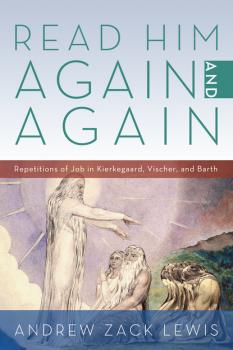ТОП просматриваемых книг сайта:
Andrew Zack Lewis
Список книг автора Andrew Zack LewisАннотация
The book of Job has captivated readers for centuries, yet its sprawling dialogues set beside its seemingly simple narrative have also puzzled those who have attempted to understand the ancient book. In this accessible companion, Approaching Job guides pastors, seminarians, and other students of Job through the characters, themes, critical issues, and key passages of one of the greatest pieces of ancient literature. Approaching Job concludes with theological and ethical implications of the biblical book of Job that should generate plenty of discussion in college courses, Bible studies, and even among laypersons attracted to a story of an innocent man who lost everything and struggled to understand why.
Информация о книге
Автор произведения Andrew Zack Lewis
Жанр Документальная литература
Серия Cascade Companions
Аннотация
In Read Him Again and Again, Andrew Zack Lewis explores the reception history of the book of Job and the hermeneutical presuppositions of its interpreters. He pays special attention to the interpretations of Soren Kierkegaard (in his «Upbuilding Discourse» on Job 1:21 and his philosophical novella Repetition), Wilhelm Vischer (in his essay «Hiob, ein Zeuge Jesu Christi»), and Karl Barth (in Church Dogmatics IV.3.1). In looking at Job in these works Lewis examines how each of the thinkers' contexts influence their writings and their understanding of Job.
Read Him Again and Again begins with a discussion on the importance of reception history in biblical studies by walking through Mikhail Bakhtin's theories on great time and the chronotope. Great texts, Bakhtin argues, continue to live and grow even after their completion and canonization, expanding in meaning as more readers participate in their interpretations. This is certainly true of the book of Job and Read Him Again and Again shows not only how Kierkegaard, Vischer, and Barth read Job, but also how they inherit the Job of their predecessors in the Christian tradition, maintaining features of earlier allegorical interpretive strategies while remaining firmly established in the critical era.
Read Him Again and Again begins with a discussion on the importance of reception history in biblical studies by walking through Mikhail Bakhtin's theories on great time and the chronotope. Great texts, Bakhtin argues, continue to live and grow even after their completion and canonization, expanding in meaning as more readers participate in their interpretations. This is certainly true of the book of Job and Read Him Again and Again shows not only how Kierkegaard, Vischer, and Barth read Job, but also how they inherit the Job of their predecessors in the Christian tradition, maintaining features of earlier allegorical interpretive strategies while remaining firmly established in the critical era.


